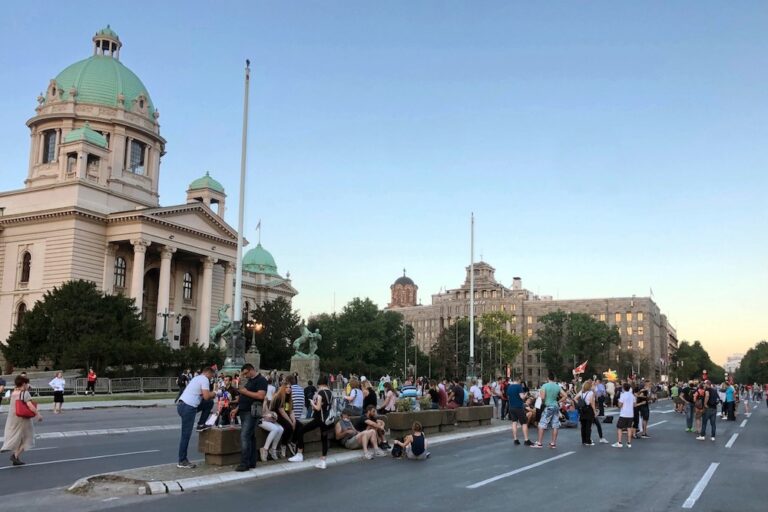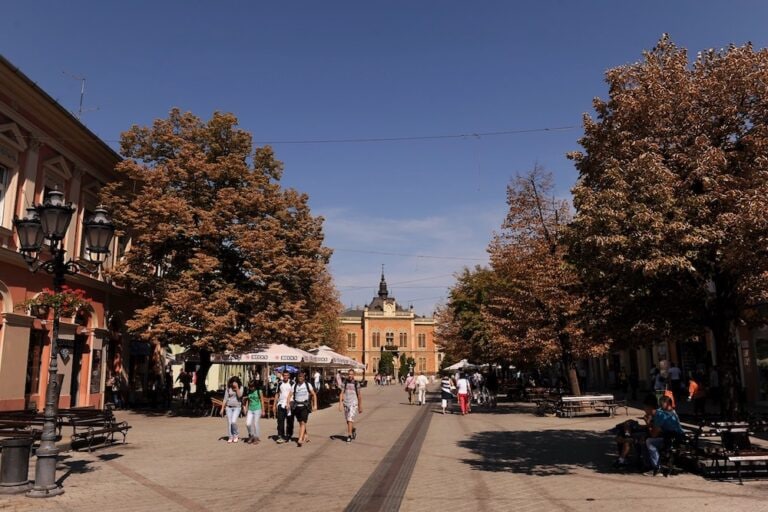(IPI/IFEX) – The following is a 15 October 1999 IPI press release: PRESS RELEASE (October 15, 1999. For immediate release) LA Times journalist and RTV Pancevo (Serbia) commended for conflict reporting Paul Watson of the LA Times and RTV Pancevo were presented special commendations today by IPI for their reporting during the recent crisis in […]
(IPI/IFEX) – The following is a 15 October 1999 IPI press release:
PRESS RELEASE
(October 15, 1999. For immediate release)
LA Times journalist and RTV Pancevo (Serbia) commended for conflict
reporting
Paul Watson of the LA Times and RTV Pancevo were presented special
commendations today by IPI for their reporting during the recent crisis in
FR Yugoslavia.
RTV Pancevo became the popular independent choice in Belgrade after B92 was
closed down by the authorities. “Independent reporting in Serbia throughout
the period of the Nato airstrikes was rendered virtually impossible,” noted
Dr. Gerfried Sperl, Editor of the Austrian daily Der Standard. “RTV Pancevo
refused to succumb to official pressure and remained committed to
independent reporting,” Sperl said. “They chose a fine line of compromise in
their reporting and mentioned all important pieces of news and stories,
including the plight of the Kosovar-Albanian refugees, but somehow they
still managed to keep broadcasting.” RTV Pancevo, which earned a reputation
for carrying swift and accurate reporting, survived two close-down attempts
by the Federal Ministry of Telecommunications during the war, said Sperl,
who is also Chairman of the IPI Austrian National Committee. “The team at
RTV Pancevo is emblematic of a media struggle within Serbia. They refrained
from spewing hatred, they operated with journalistic integrity and they
basically made the best out of an extremely difficult situation.” In what is
seen by observers as a retaliatory strike for their independent stance, the
ministry has recently ordered the station to pay a fee of 800,000 dinars
[$US80,000 approx.] for the use of its frequency.
Paul Watson was the only Western reporter who managed to stay in Pristina
for the duration of the Nato airstrikes. “We were all very worried about
him, he was in a very dangerous position,” said Johann P. Fritz, Director of
the International Press Institute. “But under these adverse conditions he
still managed to get out regular, excellent reports. Paul’s stories were
balanced, insightful and enlightening and he deserves enormous credit for
shedding light on what otherwise would have been a news dark spot.”
The Special Commendations were awarded at the official launch of IPI’s most
recent publication, “The Kosovo News and Propaganda War” (Extracts on
www.freemedia.at).


